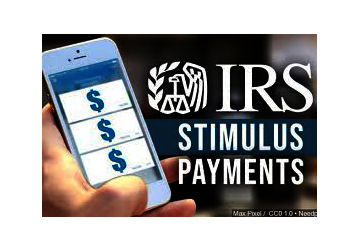
Get a stimulus check even if you don't owe taxes
Contributed By:The 411 News
Claim a Rebate Recovery Credit if you didn't get stimulus payment in 2020
Getting into the pipeline to receive the $1400 federal stimulus payments for 2021 is easier for some than others.
Because they file yearly IRS tax returns, many individuals and households are automatically in the pipeline to receive the payments from the U.S. Treasury as part of the $1.9 trillion American Relief Plan Act.
The act was signed less than 2 weeks ago by President Joe Biden and some have already received payments.
Also automatically in the pipeline for the 2021 stimulus payment are those whose only income is derived from Social Security or Railroad Retirement benefits. And they are not required to file a tax return.
Earners outside of those groups who don't usually file tax returns have to make a claim to the IRS to receive the payment. Non-filers did the same to receive the 2020 stimulus payment by using the Non-Filers tool; no longer available for the 2021 stimulus payment.
Today, non-filers must use Form 1040 to claim the stimulus. Non-filers are typically earners who don't owe any federal taxes or don't make enough to pay federal taxes. For non-filers, submitting Form 1040 is the only way to tell the IRS you are eligible and want to receive the stimulus.
Form 1040 is new this year, replacing the 1040-EZ and 1040-A forms. Non-filers may also use Form 1040-SR, also new this year. It is for seniors 65 and over, and is a simpler version of Form 1040.
Non-filers can also apply to receive 2020 stimulus payments if they didn't receive them by claiming a Recovery Rebate Credit. Use forms 1040 and 1040-SR to claim the Recovery Rebate Credit, too.
Lastly, eligibility to receive the $1,400 stimulus payment for 2021 is based on income. The full $1,400 will go to individuals who earned up to $75,000 in 2020, heads of households earning up to $112,500, and married couples filing jointly earning up to $150,000. Married couples filing jointly will receive $2,800.
Individuals earning between $75,000 and $80,000 will see a gradual reduction of the $1,400 payment. Married couples filing jointly earning between $150,000 and $160,000 will see a gradual reduction of the $2,800.
Individuals earning over $80,000 will not receive a stimulus payment, nor will married couples filing jointly who earn over $160,000.
The change of deadlines from April 15 to May 17 to file federal and state tax returns, gives non-filers more time to consider their options.
Free tax preparation assistance is available in many areas from volunteers who partner with the IRS. For a nearby location, go to https://www.irs.gov/individuals/find-a-location-for-free-tax-prep
Story Posted:03/24/2021
|